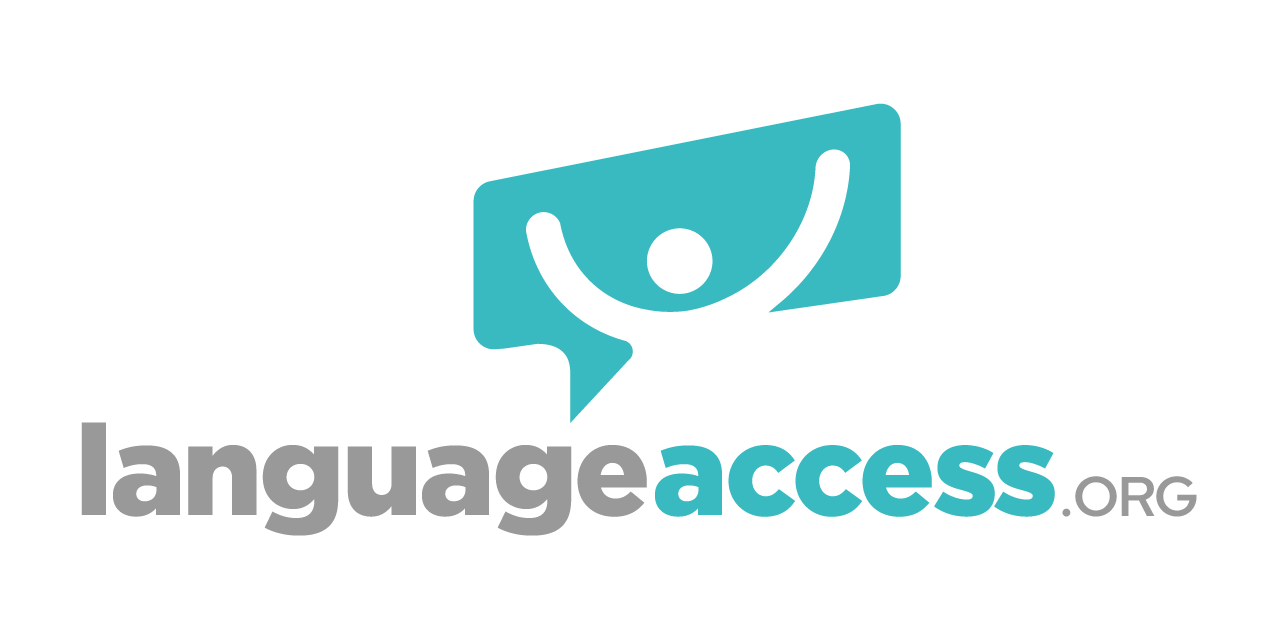Language is the primary medium of instruction. With proper language access, students who speak English may avoid significant barriers to learning. Here’s why language access is essential in education:
“Language Access is a Human Right”
Language Access has a three-pronged approach to help address the lack of language access in the community:
1) To build awareness of the shortage of translators and interpreters and offer the services of our partner, a for-profit company, Take5steps (www.take5steps.com), comprehensive training and professional development.
2) Many high schoolers are bilingual, so Language Access offers a program to help them become fully bilingual. Then, like a medical doctor, they choose a specialty to become a court, medical, or educational translator/interpreter.
3) If bilinguals get the necessary training, they become professional interpreters, and their jobs will change from $17/hour to $50- $90/hour.
Educational Settings
“We need to make sure that when we are communicating with families to make sure that we are communicating with families in a language that they understand and that they feel more comfortable with. I truly believe that having language access can make a whole difference in how a situation will end: it is transformational.”
Educational Settings
- Academic Achievement: Students learn best when they understand the language of instruction. Their academic performance is affected if they need help understanding the material due to language barriers.
- Cognitive Development: Language is crucial for cognitive development, critical thinking, and problem-solving. Students who lack language access may struggle to develop these skills.
- Inclusion and Participation: Students who cannot understand the language may feel excluded and isolated from their peers, impacting their overall school experience.
- Dropout Prevention: Language barriers can contribute to frustration and inadequacy, leading to higher dropout rates among linguistically marginalized students.


Legal Settings
Access to justice is a fundamental right, and language barriers should allow individuals to understand their legal rights and participate effectively in legal processes. Here’s why language access matters in legal settings:
- Fair Trials: Accused individuals have the right to understand the charges against them and to communicate with their legal counsel. Language barriers can hinder this right.
- Witness Testimonies: Language barriers can affect the reliability of legal proceedings. Language access allows witnesses and victims to express themselves clearly and provide accurate testimonies.
- Due Process: Language access is essential for ensuring all individuals have equal access to legal procedures, regardless of their linguistic background.
- Avoiding Miscarriages of Justice: Language barriers could lead to misunderstandings or misinterpretations, resulting in wrongful convictions or unfair outcomes.
Healthcare Settings
Effective communication is essential in healthcare settings to ensure accurate diagnosis, appropriate treatment, and patient safety. Language access in healthcare is crucial for the following reasons:
- Quality of Care: Accurate communication between healthcare providers and patients is necessary to diagnose conditions correctly and give the proper treatment.
- Informed Consent: Patients need to know exactly what’s going on with their health, their treatment choices, and what could go wrong. If they can’t understand because of language barriers, it’s hard for them to agree to treatment.
- Preventing Mistakes: Miscommunication due to language barriers can lead to medical errors, adverse reactions, and even loss of life.
- Cultural Sensitivity: Language access also includes cultural sensitivity or respect, essential for understanding patients’ beliefs, practices, and preferences.



The primary purpose
helping immigrant communities by improving communication, education, health, and cultural adjustment to build a more inclusive, just, and healthy future for everyone. También agregar imágenes más relativas a comunidades de inmigrantes
See more
